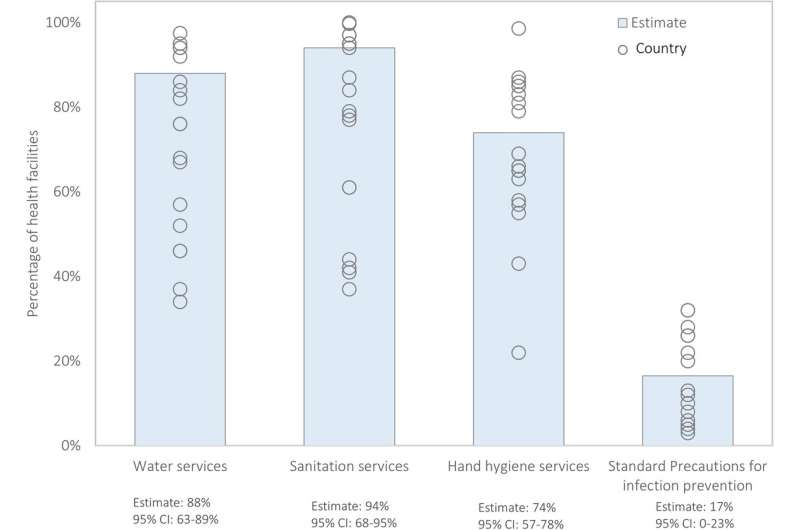Lack of access to water, sanitation, hygiene services in sub-Saharan Africa may have COVID impacts

Researchers from the Arnold School's Department of Epidemiology and Biostatistics have led a study examining the access to water, sanitation and hygiene (WASH) services in health facilities in sub-Saharan Africa. They published their findings in BMC Health Services Research.
"The COVID-19 pandemic has highlighted important needs in water, sanitation and hygiene services and standard practices for infection prevention and control in sub-Saharan Africa," says Mufaro Kanyangarara, assistant professor of epidemiology. "Our research revealed that the availability of these services has improved but remains below the global target of 80 percent in many countries. Ensuring adequate access to WASH services and enforcing adherence to safety and hygiene practices in health facilities will be essential to minimize the risk of COVID-19 transmission."
With special funding support from UofSC's Office of the Vice President for Research, Kanyangarara and David Fuente, assistant professor of Earth Ocean and Environment, led the team in examining the WASH services at more than 16,000 health facilities in 18 sub-Saharan Africa. They found that 88 percent of the facilities had an improved water source, 94 percent had an improved toilet, 74 percent had soap and running water or alcohol-based hand rub and 17 percent had standard precautions for infection prevention available.
The authors found a wide variability in facilities' access to WASH services between rural/urban areas and public/private facilities, with consistently lower access at both rural and public sites. However, health facilities across these areas had better access to WASH services when compared to households.
With 59 percent of sub-Saharan Africans living in rural areas, this disproportionate lack of access to services can result in inequalities in the prevention and control of infectious diseases. The COVID-19 pandemic has further disrupted access to WASH services in both health facilities and households due to border closures, lockdown restrictions and supply chain breakdowns.
"Improving access to WASH, healthcare waste management and environmental cleaning is essential for the delivery of quality health services and the prevention and control of infectious diseases," Kanyangarara says. "Particularly amid the COVID-19 pandemic, ensuring adequate access to WASH services and enforcing adherence to infection prevention and control practices both at health facility and community levels by governments and relevant institutions remains crucial to minimizing transmission risks."
More information: Mufaro Kanyangarara et al, Access to water, sanitation and hygiene services in health facilities in sub-Saharan Africa 2013–2018: Results of health facility surveys and implications for COVID-19 transmission, BMC Health Services Research (2021). DOI: 10.1186/s12913-021-06515-z




















